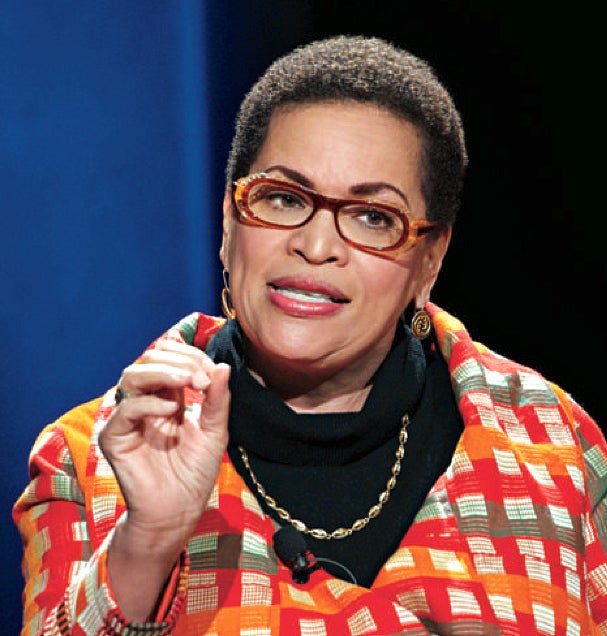
There has never been more at stake for Black women than with this election,” says Dr. Julianne Malveaux. The outspoken economist, former Bennett College president and our new special correspondent has been engaged with politics since she entered a voting booth with her mother and pulled the lever for John F. Kennedy in 1960. Now, more than a half century later, Malveaux discusses how drastically the political climate has changed, why everyone should vote in this election and what you should know before going to the polls.
ESSENCE: You’ve said this is one of the most important elections in our lifetime. Why?
Julianne Malveaux: We always have to remember people died for the right to vote, and we need to make sure people are exercising their right to vote. Your vote makes all the difference.
ESSENCE: Black women had the highest voter turnout in 2008. Do you sense the same wave of optimism among Black women voters that existed in 2008?
Malveaux: Black women have always had a high turnout. The 2008 election was exceptional. There was a sense of energy and pride in electing an African-American president. Some people of African descent are not as energized this time around.
ESSENCE: Why?
Malveaux: There are a number of factors. President Obama did have an opportunity to nominate two women to the Supreme Court, and he chose a Hispanic woman and a White woman instead of a Black woman. But President Obama is the president for all Americans, not just African-Americans. We must look closely at what he’s trying to do with health care and education. He’s making inroads with issues and concerns that matter to us.
ESSENCE: We know that Black voters are not a monolith and there are proud Black Republicans. Your thoughts?
Malveaux: Some African-American voters want to see their taxes cut and don’t mind having social benefits cut, and they wouldn’t mind seeing Mitt Romney win.
ESSENCE: How do you feel about Paul Ryan as Romney’s choice for Vice-President?
Malveaux: The cuts that Representative Ryan has previously proposed to the federal budget are the most Draconian I’ve ever seen. This concerns me, and should concern all voters, because we’re talking about the possible gutting of Medicaid, Pell Grants and women’s access to contraception.
ESSENCE: You ran for board of supervisors in San Francisco in 1984 and lost. How has politics changed since then?
Malveaux: Politics has become meaner. We’ve become a lot more polarized as a nation. I remember when people could be fiscally conservative and still be conscious.
ESSENCE: What do you believe should be top of mind for Black women voting this year?
Malveaux: First, economics. We need to focus on building wealth, which provides you with access and mobility. We have to continue to fight for education. And third, although not on the political agenda, I hope that all Black women will think about the way we are still depicted in the media. We have to stop allowing people to vilify us through these inaccurate portrayals.
ESSENCE: The issue of voter suppression is quite real for our readers. What advice do you have to offer?
Malveaux: Make sure you’re at the right polling place. Call ahead. Visit the National Coalition on Black Civic Participation (ncbcp.org) to make sure you know your rights.
Look for Dr. Malveaux in upcoming issues of ESSENCE, and catch her on your favorite radio and television programs.
